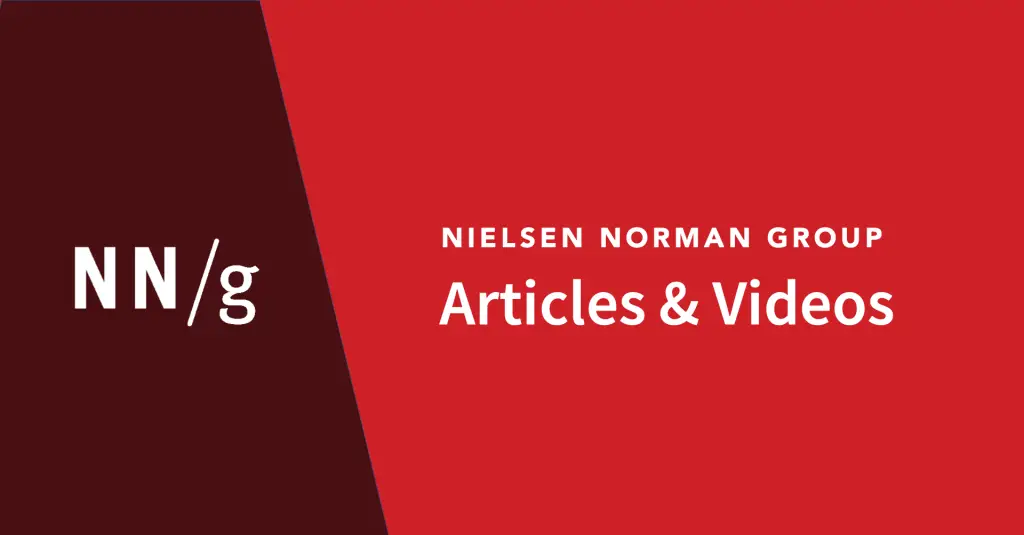
NN/g Certification: 3 Questions to Ask Before You Commit
In my course “Prototyping & User Interface Design Tools” at UNIR | Universidad de la Rioja for the Master in User Experience Design, I often get asked, “Is the Nielsen Norman Group (NN/g) Certification worth it?” This was precisely the question I examined before investing in one. For those considering it, here are the three key questions you should ask yourself before moving forward:
1. How does UX/UI relate to current profession?
Consider these scenarios: Are you a Visual, Interactive, or UX/UI Designer already familiar with industry concepts and terminology? Are you a traditional graphic designer focused on print media looking to expand your skill set? Or are you planning a career switch where the certification could help you grasp essential UX/UI principles? Even for seasoned UX/UI designers, there’s always room to grow—the certification covers a vast array of topics, allowing specialization in areas such as Interaction Design, Research, or Management. For beginners, it provides a comprehensive introduction to the field; however, given its extensive scope, many find the certification most beneficial when paired with a hands-on course (e.g., interface design or Figma).
2. Who will pay for it, you or your company?
The NN/g certification is often criticized for being expensive and even unnecessary. However, it’s not the certification itself that matters—it’s the valuable concepts you learn from it. Sure, you could research online and access free articles from NN/g and other reputable sources, but let’s be honest: do you really have the time and energy to do that? If you do, then investing in a paid course might not be a priority for you. For those who, like me, carefully balance screen time with real-life experiences, this decision deserves serious thought—I debated for years before finally signing up for my first courses.
On the other hand, companies typically allocate between 1% and 5% of an employee’s annual salary for training and development, including certifications. Investing in employee certifications is a valuable way to boost skills, productivity, and market reputation, and many companies even offer reimbursement programs to help cover the costs. If you work for a company, ask about sponsoring your continuing education—it’s a win-win situation.
3. Are you interested in psychology?
Psychology is crucial in UX/UI because it helps designers understand how users think, feel, and behave. By applying principles of cognitive psychology, designers can create interfaces that are intuitive, reduce cognitive load, and evoke the right emotional responses. This results in user experiences that are not only aesthetically pleasing but also functional and engaging, ultimately leading to higher satisfaction and better usability.
The NN/g certification is deeply rooted in psychology, emphasizing the use of cognitive psychology principles to understand user behavior and craft better user interfaces. In essence, psychology forms the foundation of their UX design training and certification program.
The 5 Why’s Method
So, the answer to “Is the Nielsen Norman Group (NN/g) Certification worth it?”—as one of NN/g’s mottos states—is: “It depends.” If you’re still undecided after reflecting on these three questions, take it a step further: consider the “5 Whys” method and keep asking yourself “why” at least five times. For example:
I want to expand my UX/UI skillset to stay competitive in a rapidly evolving industry.
Why do you want to expand your UX/UI skillset to stay competitive in a rapidly evolving industry?
Because continuous learning fuels innovation and keeps my knowledge current.
Why do you want to keep your knowledge current?
Because it allows me to adapt to emerging trends and seize new opportunities.
Why are you seeking new opportunities?
Because improved opportunities lead to greater financial stability and personal growth.
Why are financial stability and personal growth important to you?
Because they provide the foundation for a fulfilling life and empower me to make a lasting impact in my field.
Ultimately, the decision is personal, but reflecting on your own set of questions and answers will reveal the true reason behind your interest. It’s also important to note that NN/g courses are offered in segments—if you’re pursuing a Certification (5 courses) or a Master Certification (15 courses), you don’t need to complete them all in one segment. Additionally, the exams at the end of each course that award credits toward the certification, as well as the certification itself, are optional.
Whatever you decide, best of luck on your journey!

